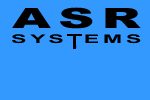

 |
|
 |
|
St.
Petersburg, Florida
Source Number: 2.4.2 Source Description Key Words Executive Summary The following tasks were included: reviewing available literature concerning geochemical and biochemical reactions taking place; performing chemical and microbiological sampling at the observation wells; reviewing, analyzing, and interpreting the geochemical and biochemical results to evaluate the ultimate fate of the reclaimed water; and performing a risk evaluation to identify potential impacts due to movement of the injected water. Both chemical and biological constituents are acting on, or available to act on, the reclaimed water and its associated groundwaters in the injection zone or in the USDWs. Partial phosphorus and total nitrogen removal are occurring in the injection zone and overlying rock units. A geochemical equilibrium speciation computer model, MINTEQA2, was used to evaluate the ultimate fate of dissolved metals associated with the reclaimed water injected. Model results show almost complete removal of metals and phosphorus. Mechanisms are believed to include sorption and microbial degradation. Nitrate, nitrite, and ammonia were not reactive using this model. Nitrate and nitrite reduction is more likely attributable to de-nitrifying bacteria. Overall, the model results showed the brackish and saline aquifer system to be very reactive chemically, enhancing treatment of the reclaimed water. Microbiological sampling and analysis revealed that there are beneficial native microorganisms in the groundwaters in St. Petersburg that are probably reacting with certain reclaimed water constituents, specifically nitrate, nitrite, and trace organics. Evidence of such microorganisms indicates that there are natural aquifer processes that can further treat the reclaimed water. Seven deep monitoring wells where the reclaimed water has arrived in various flow zones among the four sites were sampled for bacterial quality. The results of the total coliform analysis from these sites did not show the presence of these bacteria. Most bacteria isolated from these samples are indicative of bacteria found in water (Pseudomonas, Bacillus, Mirococcus, and Cactobacillus). The Crenothrix bacteria, also known as iron bacteria, points to the presence of iron from within this groundwater. The bacteria Alcaligenes faecalis, isolated from only one well, are considered low in virulence. Attenuation mechanisms acting to reduce the potential impact from reclaimed water constituents include sorption, degradation, precipitation, and dilution. Graphics and
Tables Contact Information Mr. Mark B. McNeal,
P.G. Source Documents |